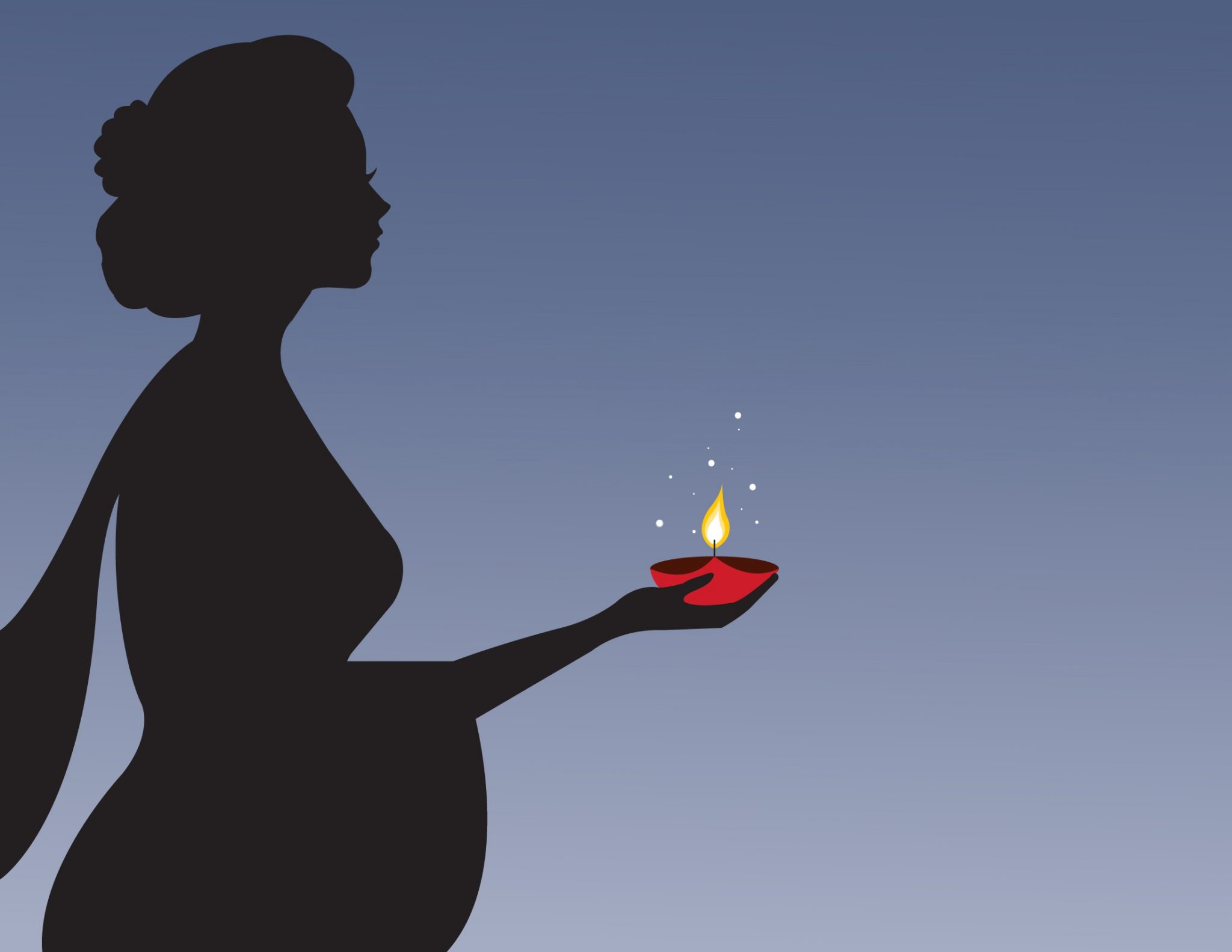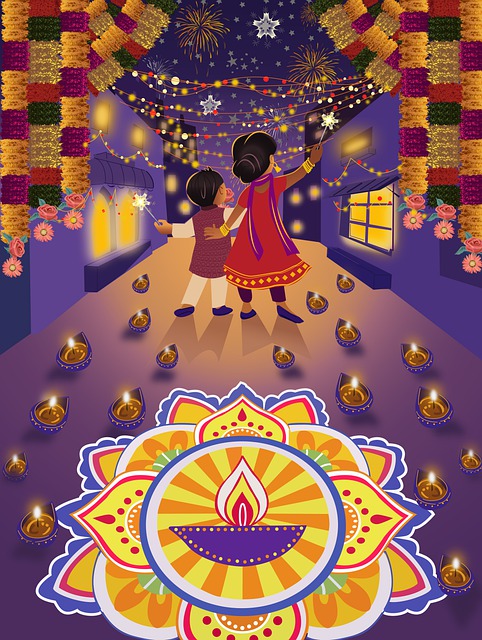

The following is an excerpt from Śrī Caitanya-caritāmṛta Madhya-līlā 15.36 by Śrīla Bhaktivedānta Svāmī Prabhupāda
ei-mata rāsa-yātrā, āra dīpāvalī
utthāna-dvādaśī yātrā dekhilā sakali
Śrī Caitanya Mahāprabhu and His devotees participated in all the festivals, including Rāsa-yātrā, Dīpāvalī and Utthāna-dvādaśī.
The Dīpāvalī festival takes place on the dark-moon night in the month of Kārttika (October-November). The Rāsa-yātrā, or rāsa dancing of Kṛṣṇa, takes place on the full-moon night of the same month. Utthāna-dvādaśī takes place the day after Ekādaśī in the waxing fortnight of the moon in the same month. All the devotees of Śrī Caitanya Mahāprabhu participated in all these festivals.
Excerpt from a conversation with Śrīla Bhaktivedānta Nārāyaṇa Mahārāja in Varṣāṇā, India, on October 12, 1996
Devotee: Why do we celebrate Dīpāvalī, and in what mood is it celebrated by Vrajavāsīs?
Śrīla Bhaktivedānta Nārāyaṇa Mahārāja: Dīpāvalī means a time of happiness. When Lord Rāma defeated  Rāvaṇa and reached Ayodhyā, a big Dīpāvalī festival was performed there. Śrī Vāmanadeva wanted to cheat Bali Mahārāja. He did not cheat him; rather he gave his mercy, although it seemed that he was cheating. When Bali Mahārāja was offered a benediction from the Lord, he requested, “Always remain in my home.” In this way the Lord Himself was cheated. Lord Vāmana was very glad, and he agreed to stay there forever. Due to great happiness, Bali Mahārāja then asked all his associates to hold a Dīpāvalī festival, and that was the first Dīpāvalī. When Kṛṣṇa defeated Duryodhana and returned to Dvārakā, a Dīpāvalī was also celebrated there.
Rāvaṇa and reached Ayodhyā, a big Dīpāvalī festival was performed there. Śrī Vāmanadeva wanted to cheat Bali Mahārāja. He did not cheat him; rather he gave his mercy, although it seemed that he was cheating. When Bali Mahārāja was offered a benediction from the Lord, he requested, “Always remain in my home.” In this way the Lord Himself was cheated. Lord Vāmana was very glad, and he agreed to stay there forever. Due to great happiness, Bali Mahārāja then asked all his associates to hold a Dīpāvalī festival, and that was the first Dīpāvalī. When Kṛṣṇa defeated Duryodhana and returned to Dvārakā, a Dīpāvalī was also celebrated there.
Lord Kṛṣṇa Himself, along with Mother Yaśodā, Nanda Bābā and all other Vrajavāsīs, came here and celebrated this festival with their own hands. In other words they themselves offered dīpa (a lighted ghee wick) and rendered many other services.
Divālī also means light. If there is no bhajana of Kṛṣṇa there is darkness, and in Kṛṣṇa Consciousness there is light. We celebrate this function in order to give up darkness and to bring the light of bhakti, pure devotion. This is the same celebration. Real happiness comes from playing karatālas and mṛdaṅgas. If one hears this, and if māyā hears, māyā will go away at once. Śrī Caitanya Mahāprabhu brought the saṅkīrtana movement to this world to drive out māyā. Śrī Kṛṣṇa and Śrī Caitanya Mahāprabhu do this Themselves, and we should try to follow Them.
The following is an excerpt from a lecture by Śrīla Bhaktivedānta Nārāyaṇa Mahārāja on the first day of Kārtika in Mathurā (Date and Time Unknown)
During this Kārtika month, Kṛṣṇa lifted Govardhana on the very day of Govardhana pūjā, just before the full moon day of this month, and Dīpāvalī, the day on which Mother Yaśodā bound Her son Kṛṣṇa, also took place in this month. Dīpa means ‘light’, and real light manifests in the form of bhakti-tattva (the established truths of pure devotional service), Kṛṣṇa-tattva (the established truths about the Supreme Lord Śrī Kṛṣṇa), māyā-tattva (the truth of this deluding material world), jīva-tattva (the truth of the eternal spirit soul) – all this knowledge is ‘light’. Knowledge of all these tattvas comes from Śrīmatī Rādhikā.
moon day of this month, and Dīpāvalī, the day on which Mother Yaśodā bound Her son Kṛṣṇa, also took place in this month. Dīpa means ‘light’, and real light manifests in the form of bhakti-tattva (the established truths of pure devotional service), Kṛṣṇa-tattva (the established truths about the Supreme Lord Śrī Kṛṣṇa), māyā-tattva (the truth of this deluding material world), jīva-tattva (the truth of the eternal spirit soul) – all this knowledge is ‘light’. Knowledge of all these tattvas comes from Śrīmatī Rādhikā.
Image/Art made possible by Pixabay.com







